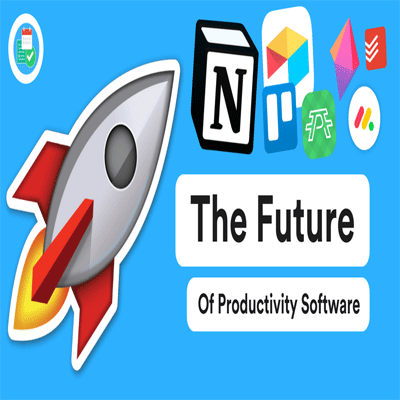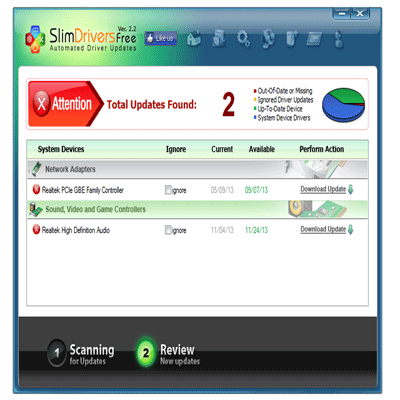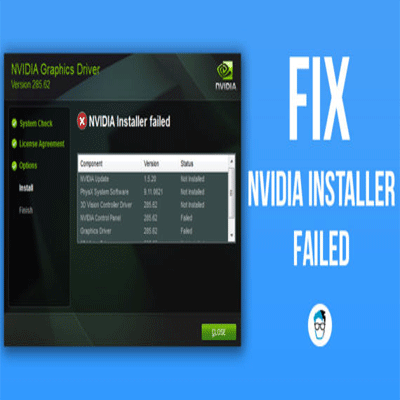Productivity software, office productivity software is one of the most helping and useful software that helps its users to be well organized and works systematically in their everyday life. It is very popular because it helps users to find better employment. The top three well-known apps people use are the spreadsheet, database, and word processing.
Word processing is used to make or edit a written document. According to your choice and nature of your work in this program, you can change the size of text, its color etc. It also helps users to spell check, to add clip art, change margins, header and footer etc.
With the help of the spreadsheet, users can arrange data in rows and columns in a worksheet. It is saved in cells that are further classified in columns and rows. There are more than 15 million cells that save information. When users interchanged data in one cell all of them that take their effect will change through automatic processing. There are spreadsheets that permit you to make macros, which occupy a string of keystrokes and guidelines. Most of the programs have this capacity to make charts, which is one of the biggest assets for its users.
The database is an arrangement that compiles information and permits approach, the betterment of performance and usage of the data. Data is saved in tables, which is based on rows and columns. Data has text, dates, hyperlinks or numbers. When data is enrolled the program can approve it by contrasting an agreed value or it may have built criteria. As the data is enrolled, you can classify it, produce reports and query it. It is sometimes assigned to as a database system of administration. It is easy to utilize it rather than put down all the information.
Related Article: What is Software?
Some Examples of Productivity Software:
Productivity software is an instrument like PowerPoint, KidPix, Word, Publisher, Excel and like many others. These initiatives amplify the productivity power of an instructor and permit them to take their pupils beyond textbooks and from other conventional methods, like lecture system.
Excel is an instrument for efficiency that can be very supportive in pedagogy, especially teaching arithmetic and science. It also has the capability to alter analytical data and put it in the form of a graph within a few seconds. This method permits the instructor to explain the variation in the results of operation or survey utilizing a chart or graph. This picture is as significant as the numerical information. There are some pupils who learn through demonstrations and they don’t have this capacity to assimilate the contrast of the data without seeing it through a chart or graph.
It is a fact that to make the graph would take a lot of time and the instructor can’t always use PC program to make graphs. This example of time explains a lot about productivity tools, as they are very important for people so they can finish their work with organization and management. Another example of productivity software is that an instructor could stand up and deliver the lecture to a group of tenth graders and is hopeful that they would be able to grasp the significant details from her lecture, but this is not always possible. Especially when an instructor demands students to note down can be tiring and take some time.
PowerPoint:
Contrarily, PowerPoint allows teachers to make slides of their notes they want to present in front of the class and those project they want to put on a screen so that everyone can copy it word to word and what the teacher expects them to review. Now users will wonder that what would be the difference between working on PowerPoint or on a regular projector for a person’s clarity and comprehension. The answer is always time and the power of adaptability.
The instructor has no longer spend much time moving the transparency scroll down so that the pupils would be able to see what is in the back, at the bottom of the page, or sometimes during to manage the position of the projector so everybody could see it clearly, without any trouble. All of the mentioned time consuming and hectic issues will not bother users in case they use PowerPoint. A teacher can easily go through her/his slides on PowerPoint without any trouble. Except that instructors can also add some images or links to present and explain the information that she/he is explaining to the class with the help of a projector.
Scaling of PP:
The PowerPoint system is very easy to go through as it can be created in large fonts without having the anxiety of wasting transparencies, which also permits everyone to see and read the instructor while explaining the significant points. With the help of encouragement and Kidspiration children can our technology to communicate to one another and learn syllabus. These programs permit teachers to make their own unique activity for their pupils to end. By drilling these unique activities themselves they are not only able to grasp the information that is needed, but they are also connecting with that information which will make a long time effect on the mind of pupils.
Pupils can also site and learn information until unless they are not able to learn anything more but until they minds are excited and have a wish to learn these facts or tools for life that can also be helpful in their lives afterward practically. Productivity tools accelerate a pupil’s mind through graphs, color, pictures, activities and many other things. It is not what a pupil memorizes in a lesson, but what he or she takes out from it and has the capacity to utilize that knowledge in everyday life, and it also increases the effect of the lesson on the student.
List of Productivity Software:
Following are the most famous and widely used productivity software, office productivity software:
1. Google Apps for Business:
Google’s official suite consists of a collection of office productivity tools that includes enhanced-for-business versions of Google Talk, Gmail, Google Sites, Google Video, Google Calendar, Google Docs. Many pricing options are also available there, it is based on the size of your business, and the limited-time free trial is also there for your convenience.
2. LibreOffice Productivity Suite:
This is another free office productivity suite that comes from the non-profitable organization, The Document Foundation. Apps consist of Calc, Impress, Writer, Draw, Math, and Base. As it’s free, help comes mainly from the users and those who made it. License for this suite is LGPL, meaning it can be customized according to the requirement.
3. OpenOffice:
It is another free office productivity suite. The following things below are presented in this suite like Impress, Math, Draw, Base and Writer. Oracle is the chief patron of code to OpenOffice, but there are also many dominant companies who take part in it. For technical help, they also offer a forum and an FAQ site along with a user guide.
4. Microsoft Office:
The Microsoft Office Suite has a range of configurations from home utilization to student utilization to use by various size businesses. It is also based on the configuration, the apps available in the suite can change, but it normally consists of at least Outlook, Excel, Word, OneNote, and PowerPoint. It is not free (although some versions have a free trial), but there are many free templates available on the Microsoft site.
5. WordPerfect Office X5:
Another office productivity suite that offers more than one configurations based on the customer requirement. The home and student version have software for spreadsheets, presentations, word processing, slideshows and a digital notebook. Free trials are also available, though the productivity suite is not free. Templates are available, some support plans are obtainable and there is also knowledgebase of the queries asked by people often.
6). Zoho:
It also offers a large number of productivity software tools, but as far as I know, they have not packaged altogether in a suite. At the time of publication, the products of Zoho were free for personal utilization, although the site stated that business and corporate will give charges in case they want to use it. Some Zoho tools that may be of certain regard include Sheet, Show, Writer, and Calendar. Support is also accessible.
7. Quickoffice & OfficeSuite Pro5:
They are technically not office suites but these applications give the capacity to give you access to your Microsoft Office files from your mobile device. For the freelancer on the go, this means flexibility. OfficeSuite Pro5 is specifically for the Android Market. Quickoffice can be helpful for various mobile devices.
8. PlusOffice Free 3.0:
It is a freeware package that is based on OpenOffice. Utilize this on Windows 7/Vista. The suite adds the spreadsheet, a text editor, presentation package, and many other apps. You can also compare it with commercial packages.
9. IBM (r) Lotus (r) SmartSuite (r):
This suite will cost money, but the product also has the support of IBM. It has Freelance Graphics (r), Word Pro (r), and Approach (r). Additional software options are also obtainable for an added cost.
10. ThinkFree:
This office productivity is very famous because of its compatibility with MS Office. You can also Use it for creating spreadsheets, word processing, and presentations. There are many versions of this suite available, one for the Windows, Linux for the Mac, and even Android operating systems. It costs money but you can install a trial version.
11. KOffice:
This is another free office productivity suite alternative. It has Showcase (presentation software). KWord (a word processor) and KCells (a spreadsheet) As it’s free, it largely based on volunteers and users to retain and update it. There is a Userbase and forum.
12. NeoOffice:
This is specifically suitable for MAC OS X. They’ve even added a mobile version that can be approached remotely. It is classified under the GNU General Public License (GPL). User donations funded it completely.
13. I Done This 2.0:
We can be biased in our opinion, but we think that I Done This to be is a pretty great instrument. For common day to day status, updates and progress reports, you can have cross-team transparency and can make the level of communication through it. It is very easy to learn and utilize and helpful for all kinds of teams.
14. FreedCamp:
It is brand new, user-friendly tool for productivity. FreedCamp adds characteristics like sticky notes, to-do lists, and collaborative calendars. It also helps as a baseline from where you can organize and systemize things like project templates, wikis, and invoices.
15. Asana:
Asana is an all-in-one heavy-duty productivity instrument. It lets teams allocate emails or duties and then change them into something practical. You can also manage, assign, or cooperate on projects, and check them off when you finish them.
16. Trello:
Trello is an instrument for the management and the process of allocation of projects. Every task or project is put into a card which you can then systemize them into columns and funnels across a board.
17. Campaign Monitor:
It is the one and only email facility that created it onto the list, but that’s because of how quickly you can get campaigns out to your customers with it. Their drag-and-drop editor is our favorite because it lets you quickly make beautiful, striking emails that work on all devices and then A/B test your emails to optimize.
18. Boxer:
It is a mobile-only application that supports you to re-organize your email on your cell phone. You can bulk edit, set up canned responses, or assign labels and categorizations. The application also interconnects with Drive, Salesforce, and Evernote, so you can forward the email to other instruments that you utilize.
19. SaneBox:
In case you want to track and you aren’t scare of a robot takeover, then SaneBox is your application. It also records your email from time to time and learns to filter emails that are not important to another folder. Through it you are not only spared all those useless emails, you don’t have to make any complicated conclusion.
20. StayFocused:
This software takes over your PC and gives you right to block time-wasting, useless websites during work hours. You can also track your most productive hours, and then schedule blockers in different time windows.
Conclusion:
Productivity software, office productivity software is helpful for PC users, as they save user’s time and energy. It also completes straining tasks in less time so we can consume that time in some other activities.












